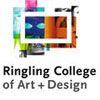
What are the top private game design schools in the U.S. for 2022?
| Ranking | School | % of Schools Considered |
|---|---|---|
| 1 | University of Southern California | Top 2% |
| 2 | Carnegie Mellon University | Top 3% |
| 3 | New York University | Top 4% |
| 4 | Rochester Institute of Technology | Top 5% |
| 5 | Savannah College of Art and Design | Top 7% |
| 6 | DigiPen Institute of Technology | Top 8% |
| 7 | Full Sail University | Top 9% |
| 8 | Southern Methodist University | Top 10% |
| 9 | Drexel University | Top 15% |
| 10 | DePaul University | Top 15% |
| 11 | Massachusetts Institute of Technology | Top 15% |
| 12 | Gnomon School of Visual Effects | Top 15% |
| 13 | Rensselaer Polytechnic Institute | Top 20% |
| 14 | Ringling College of Art and Design | Top 20% |
| 15 | Worcester Polytechnic Institute | Top 20% |
| 16 | Champlain College | Top 20% |
| 17 | Columbia College Chicago | Top 25% |
| 18 | The New School's Parsons School of Design | Top 25% |
| 19 | Northeastern University | Top 25% |
| 20 | Laguna College of Art and Design | Top 25% |
| 21 | Academy of Art University | Top 30% |
| 22 | University of Pennsylvania | Top 30% |
| 23 | Baylor University | Top 30% |
| 24 | University of Denver | Top 30% |
| 25 | University of Advancing Technology | Top 35% |
Our 2022 rankings of the Top 25 Private Game Design School Programs in the US. For an explanation of ranking criteria, click here.

The University of Southern California (USC) is home to USC Games—a collection of 10 minors and four degree programs leading to a BA, BS, MFA or MS. Programs are housed in the School of Cinematic Arts’ (SCA) Interactive Media & Games Division or the Viterbi School of Engineering, Department of Computer Science.
The USC Games Program combines the study of art, design, engineering, and production. Classes are collaborative, immersive, and hands on, allowing students to develop team-building skills and expertise in every area of game design and development. Courses are taught by working professionals in the field.
Specific degrees include a BA in Interactive Entertainment, BS in Computer Science (Games), MFAs in Interactive Media (Games and Interactive Entertainment) and Interactive Media (Games and Health), and an MS in Computer Science (Game Development). An MA in Cinematic Art (Media Arts, Games and Health) is offered in conjunction with SCA, the Graduate School and the Creative Media & Behavioral Health Center.
USC Games Minor Programs at the University of Southern California are designed for students who would like to develop entry-level game design and development skills that can be utilized in interactive media, animation, games, film/television, and other areas. Minor options include Game Design, Game Animation, Video Game Design and Management, Game Audio, Game Entrepreneurism, Video Game Programming, Game User Research, 3D Computer Modeling and Graphics, Computer Science, and Themed Entertainment.
Graduates of USC Games have developed and sold their own games, launched their own studios, or landed positions at major studios such as Riot Games, Disney, Epic Games, Apple, ESPN, and CBS interactive, among others.
The University of Southern California is accredited by the Western Association of Schools and Colleges (WASC) Senior College and University Commission (WSCUC). Established in 1880, USC serves 49,500 students across campuses and centers in Los Angeles (two campuses), Marina Del Rey, Orange County, Catalina Island, Alhambra, Sacramento, and Washington, D.C. The University of Southern California offers more than 600 programs housed in 23 schools, academic divisions, and institutes.

The Entertainment Technology Center (ETC) at Carnegie Mellon University (CMU or Carnegie Mellon) houses a master’s program for game designers and a minor in collaboration with the Integrative Design, Arts, and Technology Network (IDeATe). Founded in 1998, the ETC is a partnership between Carnegie Mellon University’s College of Fine Arts and the School of Computer Science.
The ETC Master’s in Entertainment Technology (MET) is a terminal degree that takes two years to complete. The program explores everything from acting to worldbuilding. Specific required courses include Fundamentals of Entertainment Technology, Visual Story, and Improvisational Acting, Building Virtual Worlds. ETC MET students will also take electives from the following areas: Leadership & Innovation, Interactive Storytelling, Themed Entertainment, Game Design, and General. Possible elective options include Game Design, Prototyping and Production, Experience Design, Role Playing Game Writing Workshop, Entrepreneurship in ETC, and Advanced Pipeline Topics for Film and Game Art.
The ETC IDeATe Minor in Game Design is open to all majors at CMU. Note that the school has more than 7,000 major/minor combo options. Popular options for game designers include the BFA in Art/Game Design Minor, BS in Computer Science (CS)/Game Design Minor, the Bachelor of Computer Science and Arts (BCSA)/Game Design Minor, and the BS in Music and Technology/Game Design Minor. ETC also allows students across departments to enroll in individual courses to enhance their program of study.
Students in the ETC IDeATe Minor in Game Design will take courses that cover topics such as game programming, Interactive narrative and character development, user testing, computing, interface design, game systems and mechanics design, visual and audio design, teamwork, and the design process. The ETC IDeATe Minor in Game Design requires a minimum of 45 units of study.
Graduates of the Game Design Programs at Carnegie Mellon University are routinely hired by top companies such as Apple, Google, Microsoft, and Meta (formerly Facebook). Other employers include 2K Games, A3 by Airbus, and 31st Street Studios.
Carnegie Mellon University is accredited by the Middle States Commission on Higher Education (MSCHE). Founded in 1900, CMU serves more than 14,500 students enrolled in 200+ programs in seven colleges and schools. Carnegie Mellon University also has more than 20 research partnerships in Silicon Valley, Australia, Africa, and Qatar.

New York University’s (NYU) Tisch School of the Arts houses the Department of Game Design, home to The NYU Game Center and NYU Game Center Incubator. Founded in 2008, The NYU Game Center hosts events and programs such as the NYU Game Center Lecture Series, No Quarter Exhibition (est. 2010), and the professional game conference known as PRACTICE: Game Design in Detail. The Center also hosts workshops and tournaments.
NYU Tisch Game Center programs include BFA and MFA degrees in Game Design, and Minor in Games. The minor consists of 18 credit hours of study and it explores foundation game studies and other areas through elective coursework. Graduate students will complete a thesis project to be presented at the NYU Game Center Spring Show.
All programs at the NYU Game Center consist of immersive academic seminars and hands-on experiences in the Center’s development studios and play labs. Students may focus on programming, design, or visual design for games, game criticism, game art, or other areas.
A major component of the NYU Game Center is the internship program. Students have completed internships at Disney, Ubisoft, TreSensa, and Arkadium. NYU Game Center graduates will leave the program with a resume and several finished games.
New York University alumni are game artists, designers, and developers, entrepreneurs, AI engineers, and software publishers. They work at companies and studios such as Blizzard Entertainment, Riot Games, Amazon, Tencent, Take-Two Interactive, ESPN, Nickelodeon, and IGDA Japan, among others.
New York University is accredited by the Middle States Commission on Higher Education (MSCHE). Serving nearly 55,000 students, the school is one of the nation’s largest private universities. Founded in 1831 and offering an estimated 400+ programs, NYU has additional campuses in Abu Dhabi and Shanghai, and 11 global academic centers in Asia, Europe, Africa, North America, and South America. Tisch School of Arts was founded in 1956 as a school within New York University.

Rochester Institute of Technology (RIT) has a number of paths to study game design. Housed in the College of Art and Design is the School of Design, which offers a BFA in 3D Digital Design. Course examples for the program include Game Development and Algorithmic Problem Solving, Computer Science, Environment Design, Layers and Effects, and Modeling and Motion Strategies courses.
Within RIT’s B. Thomas Golisano College of Computing and Information Sciences (GCCIS) is the School of Interactive Games & Media (IGM), which offers BS and MS degrees in Game Design and Development. An Accelerated BS/MS is also available. All programs explore animation, math and science, interactive media, modeling, user interaction, and of course, game design and development.
Course examples across programs include Games for Change, Physical Computing & Alternative Interfaces, Casual Game Development, Systems Concepts for Games and Media, Game Engine Design and Development, Artificial Intelligence (AI) for Gameplay, Console Development, Level Design, Game Design and Development for Casual and Mobile Platforms, and Gameplay and Prototyping.
Seminars, game development and research studios, and independent study are also part of the programs. RIT IGM Game Design and Development students will also have the rare opportunity to complete two paid blocks of cooperative education, which will allow them to gain experience in the games industry through a full-time employment at a studio. Google, Cartoon Network, Electronic Arts (EA), Sony Interactive Entertainment, Epic Games, and Microsoft are just a few recent co-op companies. Students will also have the opportunity to develop and commodify their own games at RIT’s MAGIC Spell Studios.
Rochester Institute of Technology is accredited by the Middle States Commission on Higher Education (MSCHE). Dating back to 1829, the school has campuses in China, Croatia, Dubai, and Kosovo. RIT serves more than 19,000 students, making it one of the nation’s largest private universities. More than 200 programs are offered in 11 colleges and institutes.

The Interactive Design and Game Development Program at Savannah College of Art and Design (SCAD) offers degree programs at all levels for game designers. Housed in the SCAD School of Digital Media, undergraduate options include a BA in Digital Media with Game Development and Interactive Design Tracks, a BFA in Interactive Design and Game Development (IDGD), and Minors in Concept Design for Animation and Games, Game UX, Interactive Design and Game Development, Concept Art for Games, and Mobile and Interactive Design. Options for graduate students include MA and MFA degrees in IDGD. Programs are offered online via SCADnow, and at the Atlanta and Savannah campuses.
The School of Digital Media at SCAD provides opportunities for game design students to gain hands-on experience through internships with local and national studios. Students will also work individually and in teams to complete projects in state-of-the art facilities such as the labs and SCAD Digital Media Center. And each quarter, students have the opportunity to interview and present their portfolios to professionals in the industry.
Past visitors have been affiliated with studios such as Electronic Arts (EA), Zynga, and Activision Blizzard. Graduates of the Interactive Design and Game Development Programs at Savannah College of Art and Design are routinely hired by these and other studios such as Epic Games, Sucker Punch Productions, and Firaxis Games, among others.
Savannah College of Art and Design is accredited by the Southern Association of Colleges and Schools Commission on Colleges (SACSCOC). With more than 100 degree programs and 75+ minors and certificate options, SCAD has more degree programs and specializations than any other art and design college in the country. Founded in 1978, Savannah College of Art and Design serves more than 15,000 students across campuses in Atlanta and Savannah, Georgia, and Lacoste, France.

DigiPen Institute of Technology (DigiPen) launched the world’s first bachelor’s degree in Video Game Technology and Development. The program has evolved and expanded to include BS degrees in Computer Science (CS) & Game Design, and Computer Science in Real-Time Interactive Simulation, and BA in Game Design. An MFA in Digital Art that prepares graduates for careers in animation and games is also available. The program, which allows students to customize a specialization, requires a final Thesis Project, which culminates with a professional portfolio.
Students in the DigiPen Game Design BA Program will explore interactive systems and game design, communications, user experience, and psychology. BS in Computer Science & Game Design students will study artificial intelligence (AI), system, level and technical design, user interface design, and programming languages.
BS in CS/Real-Time Interactive Simulation students will master software engineering, 2D and 3D simulation, engine technology, graphics rendering, graphical user interfaces (GUIs), artificial intelligence (AI), and programming languages.
For exceptional students, DigiPen offers an accelerated BS/MS Program that allows them to complete both programs in just five years. The BS in Computer Science in Real-Time Interactive Simulation degree program is accredited by the Computing Accreditation Commission of ABET.
Students in all programs will work in multidisciplinary teams in a studio environment to create software and a series of video games.
DigiPen Institute of Technology graduates enjoy a high job placement rate. To date, more than 600 companies have hired DigiPen graduates. A few examples include Epic Games, DreamWorks Interactive, Google, Amazon, Walt Disney Imagineering, SpaceX, Warner Bros. Interactive Entertainment, Microsoft, Electronic Arts (EA), ArenaNet, Bungie, Activision, Insomniac Games, Zynga, Sony Interactive Entertainment, Booz Allen Hamilton, Intel Corporation, Ubisoft Shanghai, and Take-Two Interactive.
DigiPen Institute of Technology is accredited by the Accrediting Commission of Career Schools and Colleges (ACCSC). Established in 1988, DigiPen serves 1,200 students enrolled in 10 degree programs in Game Design and Development, Digital Art and Animation, Engineering, Computer Science, Audio and Music. DigiPen Institute of Technology has international campuses in Singapore and Spain, and educational partnerships with Princess Nourah bint Abdul Rahman University in Riyadh, Kingdom of Saudi Arabia, Keimyung University in South Korea, The One Academy in Kuala Lumpur, Malaysia, and Thammasat University in Thailand.

The Game School at Full Sail University features production studios and classrooms that look and feel like major production studios. Game School programs include a Game Design MS and BS degrees in Game Art, Game Development, Game Design, and Simulation & Visualization. Undergraduate Certificates in 3-D Arts and Game Design are also available. With the exception of the BS in Simulation and Visualization, all programs are offered on campus and online.
In addition to gaining production experience in a real-world studio environment on campus, Full Sail students have opportunities to work off-campus at local and national studios through the internship program. Courses in The Game School are also immersive. Course examples across all programs include Motion Capture, Game Mechanics, Game Production Tools, Engine Development, Artificial Intelligence (AI), and Data Visualization & Modeling. Students will master all roles in the production pipeline, video game development for computers, networks and consoles, test simulation, game effects, narrative design, and animation.
Full Sail University’s Career Development Department provides 24/7 access to job opportunities, along with workshops and presentations that cover branding, networking, research strategies, and interviewing techniques. The department also coordinates local hiring events and events in other major markets such as Los Angeles and New York.
Full Sail University graduates have worked on popular games, films, and ad campaigns. More than 150 graduates were credited on numerous nominated games at the 2021 Game Awards.
Companies and studios that have hired Full Sail graduates include Disney, Rockstar Games, Blizzard Entertainment, Industrial Light & Magic (ILM), Nickelodeon, Bunim Murray, Pixar, MTV, ESPN, Universal Studios, Miramax, DreamWorks, and HBO.
Full Sail University is accredited by the Accrediting Commission of Career Schools and Colleges (ACCSC). Full Sail serves approximately 21,000 students. The school offers certificates and degrees at the associate's, bachelor's, and master's levels in entertainment, technology, art, and media. Launched in 1979, Full Sail University is located just 35 minutes from downtown Orlando and Universal Studios.

Southern Methodist University (SMU) houses the SMU Guildhall, which launched in 2003 with 32 full-time students. When it opened, the Guildhall became the first graduate-level digital game development program of its kind. Today, the program has partnerships with hundreds of studios and companies across the globe. Some 860+ SMU Guildhall alumni have worked at more than 270 studios worldwide.
A sampling of Guildhall industry partners includes Disney Interactive, Blizzard Entertainment, Gameloft, Insomniac Games, Riot Games, Unity, Bethesda Softworks, Samsung, Epic Games, Microsoft Game Studios, Bungie, and Gearbox Software, to name a few.
Other Guildhall highlights include professional development coursework, career fairs, guest speakers, workshops, lectures, mentorship programs, team game projects, and portfolio reviews.
Program offerings at SMU Guildhall include a Master of Interactive Technology (MIT) in Digital Game Development (thesis required) and a Professional Certificate in Digital Game Development (no thesis). Guildhall specialization options include Art Creation, Level Design, Production, and Software Development. To graduate, students will develop a minimum of three industry-ready 2D and 3D games.
Southern Methodist University has several additional program options for game designers. Meadows School of Art houses the Division of Art, which offers an Art BFA. In collaboration with the Guildhall, the BFA program allows students to add the Art Creation or Level Design Specialization offered in the MIT Digital Game Development Program.
Lyle School of Engineering houses the Computer Science Department, which offers a BS in Computer Science. Core requirements for the program include Programming Languages, Assembly Language Programming and Machine Organization, Digital Computer Design, Graphical User Interface Design and Implementation, and Software Engineering Principles.
Students may add the 10 credit-hour Game Development Track, which consists of Programming for Commercial Game Engines, Software Development for Games, Team Game Production, Math and Physics, and the final Gaming Design Project.
Southern Methodist University is accredited by the Southern Association of Colleges and Schools Commission on Colleges (SACSCOC). The school is also an accredited institutional member of the National Association of Schools of Art and Design (NASAD). Founded in 1911, SMU enrolls nearly 11,000 students from all 50 states, DC, and 90 foreign countries. SMU offers 250 programs at all degree levels across seven colleges and schools.

The Antoinette Westphal College of Media Arts & Design (The Westphal College) at Drexel University (Drexel) has majors, minors, and accelerated programs for game designers. Options include Game Design and Production (BS), Game Design and Production/Digital Media (BS/MS), Interactive Digital Media/Digital Media (BS/MS), and Interactive Digital Media (Minor).
Accredited by the National Association of Schools of Art and Design (NASAD), The Westphal College programs are studio-based and hands-on. Small class sizes allow for individual instruction and the cooperative (co-op) education program enables students to gain work and world experience prior to graduation. Co-op experiences are local, national, and in places such as Hong Kong, London, Spain, Ghana, and Greece, among others.
The College of Computing & Informatics at Drexel University offers additional options for designers looking for a program that combines game development with computer science. Available pathways include BA and BS degrees in Computer Science (BAC, BSCS) and a 24 credit hour Computer Science Minor. The degree programs offer a Concentration in Game Programming and Development. Like The Westphal College programs, the Computer Science programs provide a hands-on curriculum combined with valuable co-op experiences. The programs end with a full-year capstone project.
Students in all programs have access to the Center for Games, Artificial Intelligence, and Media Systems (GAIMS Center), Drexel Game Design and the RePlay Lab, and the Entrepreneurial Game Studio (EGS).
Graduates of the Game Design Programs at Drexel University are prepared to pursue positions in pc, mobile and console game design, game art, simulation, education, training, and more.
Drexel University is accredited by the Middle States Commission on Higher Education (MSCHE). The Digital Media Programs are accredited by the National Association of Schools of Arts & Design (NASAD). Established in 1891 as Drexel Institute of Art, Science and Industry, Drexel University serves nearly 23,600 students, enrolled in more than 200 degree programs in 15 colleges and schools.

The Game Design Program at DePaul University (DePaul) provides a number of options that allow students to study game design at all levels. Undergraduate pathways include BS degrees in Game Design, Game Programming, and Computer Science with a Game Systems Concentration. Graduate programs include an MFA in Game Design and an MS in Game Programming. The Game Design Program is housed in DePaul’s College of Computing and Digital Media (CDM).
Game Design at DePaul University emphasizes collaboration and interdisciplinary learning. Design students will have opportunities to work with fine art, audio, programming, and writing students. The curriculum includes coursework that helps students navigate the game production process from inception to the testing phase. Course examples include Game Development, Practical Scripting for Games, Animation, Game Sound Design, and 3-D Design and Modeling.
Students in all programs have access to the Virtual and Augmented Design Lab, game studio known as DePaul Originals, and CDM facilities such as gameplay, playtest and usability, and game development and research labs. Other program benefits include participation in a variety of exhibitions, internship opportunities at local and national studios, and the biennial Japan Study Abroad Program. Students will leave the DePaul Game Design Program with a portfolio of their best work.
Some of the top careers for DePaul Game Design graduates include game development, software engineering, computer graphics, animation, commercial production, and project management. Program alumni have been hired at companies and studios such as Epic Games, Leo Burnett, iiRcade, Fast Radius, Speegs Media, and TCS.
DePaul University is accredited by the Higher Learning Commission (HLC) of the North Central Association of Colleges and Schools (NCA). The school serves 21,670 students, making it the largest Catholic university in the U.S. Founded in 1898, DePaul University offers more than 300 programs across two campuses and 10 academic colleges.

Massachusetts Institute of Technology (MIT) houses the MIT Game Lab, which helps students customize a plan of study that matches their goals. The Lab is also a research and development hub that designs games for research.
Besides opportunities to customize the curriculum, individuals interested in studying game design at MIT may do so through several programs that have the option to choose electives from any department or a built-in “cluster.” Examples include the Comparative Media Studies (CMS), and Computer Science and Engineering (CSE) Programs.
Housed in the School of Humanities, Arts, and Social Sciences (SHASS), the Department of Comparative Media Studies (CMS) offers programs leading to a BS or MS in CMS. The Games and Interactive Media Cluster consists of more than 20 game design course options.
The Electrical Engineering & Computer Science Department in the MIT Schwarzman College of Computing (MIT EECS) is the largest department at MIT. EECS offers BS and MS degrees in Computer Science and Engineering. Programs are highly interdisciplinary and emphasize lab work, research, on-campus team and independent projects, and off-campus internships with MIT partner companies. Programs explore software engineering, programming languages, human-computer interaction (HCI) and graphics, artificial intelligence (AI), machine learning, algorithms and theory, and computer systems.
Elective requirements allow students to take additional courses that focus on games. Courses may be offered within and outside the department. Examples from the CMS Department include Game Design Methods, Videogame Theory, Interactive Narrative, Imagination, Computation & Expression Studio, Game Design, Advanced Game Design Studio, Designing Interactions, Design and Development for Games and Learning, Games and Culture, Games for Social Change, Fun and Games: Cross-Cultural Perspectives.
The MIT Department of Brain and Cognitive Sciences (BCS) offers an additional program for designers looking to specialize in unique areas such as psychological games and behavioral change. The BS in Brain & Cognitive Science is offered in partnership with the EECS Department. And finally, students who are interested in the business side of game development or who would like to launch their own studios, can enroll in the BS in Business Program, housed in the MIT Sloan School of Management. The same rules apply. For both options, students may work with the MIT Game Lab to customize a focus area that aligns with their goals.
Massachusetts Institute of Technology MIT is accredited by the New England Commission of Higher Education (NECHE). The school was founded on April 10, 1861, just two days before the start of the Civil War. MIT serves nearly 12,000 students enrolled in more than 100 programs in five schools.

Gnomon School of Visual Effects (Gnomon) emphasizes hands-on production. Learning takes place in classrooms that replicate real production studios. Consisting of a 30,000 square foot facility, Gnomon also houses nine state-of-the-art computer labs, drawing studios, lecture spaces, cycloramas, dedicated sculpture labs, a green screen stage, and the Gnomon Gallery.
Program options include a BFA and Certificate in Digital Production. More than 35 ten-week courses are also available. Examples include Game Creation, Props and Weapons for Games, Dynamic Effects, Maya Modules, Character Rigging for Production, and Creature Animation.
The Gnomon BFA in Digital Production Program focuses on the 3D production pipeline for visual effects, games, and film. Students will also master industry software and tools such as Nuke, After Effects, V-Ray, ZBrush, Maya and Photoshop. A wide variety of elective options allows BFA students to create a specialization in any area of entertainment or production.
Gnomon BFA students may also choose to complete the 3D Generalist curriculum or the Game Art or Visual Effects Concentration. The program, takes four years to complete (full-time), with or without a concentration. Graduates will leave the program with a professional demo reel.
The Digital Production Certificate Program has five areas of emphasized study: 3D Generalist, Character and Creature Animation, Games, Visual Effects Animation, and Modeling & Texturing. The program takes two years to complete, full-time.
Gnomon School of Visual Effects alumni work at some of the world’s top studios. Examples include Framestore, WetaFX, Disney Imagineering, Walt Disney Feature Animation, Blizzard Entertainment, Amazon Game Studios, Pixomondo (PXO), Marvel, Industrial Light & Magic (ILM), DreamWorks, Electronic Arts (EA), Framestore, and Riot Games.
Established in 1997, Gnomon School of Visual Effects is accredited by the Accrediting Commission of Career Schools and Colleges (ACCSC). Located in Hollywood, California, Gnomon serves more than 500 students enrolled in BFA and certificate programs designed for students seeking production jobs in the entertainment industry. Individual 10-week courses are also offered.

Rensselaer Polytechnic Institute (RPI) is a designated New York State Center of Excellence (NYSTAR) in Digital Game Development. Housed in the School of Humanities, Arts, and Social Sciences (HASS) is the Games and Simulation Arts and Sciences (GSAS) Department, which offers a BS in Games and Simulation Arts and Sciences, and MS and PhD degrees in Critical Game Design.
The GSAS Department emphasis interdisciplinary study. This allows students in all programs to explore 3D animation, music and audio for games, programming, software engineering, digital arts, and experimental game design. RPI GSAS students will also take courses in management and leadership, and they will work in teams to build games. Students will graduate from the Rensselaer Polytechnic Institute GSAS Programs with a professional portfolio of their creative works.
RPI GSAS alumni go on to establish careers in a variety of fields such as game design and development, animation, artificial intelligence (AI), visualization, interactive simulation, computer science, and fine arts, among others.
Rensselaer Polytechnic Institute is accredited by the Middle States Association of Colleges and Schools (MSA-CESS). Established in 1824, RPI is the oldest technological research university in the U.S. Serving more than 7,600 students, Rensselaer Polytechnic Institute offers 100+ degree programs in five schools.

Following the studio model of teaching, Ringling College of Art and Design (RCAD) emphasizes learning by doing. Students in all programs at the school also benefit from visiting artists, industry internships, and other experiences that allow students to work on real projects with local businesses and studios.
For students seeking careers in the game design industry, RCAD offers a BFA In Game Art that attracts major recruiters from Epic Games, Blizzard Entertainment, and Riot Games. The program explores topics such as environmental design, professional practices, methods and technologies, and concept and creative problem-solving. Students will also work on projects in teams to develop collaboration and communication skills.
The Game Art BFA requires 48 credit hours in the major. This accounts for 40% of the coursework. Sample courses for the program include 3D for Games I-IV, Game Design I-II, Programming for Artists, and Visual Development for Games. BFA students will also take four courses leading to the development of a Game Thesis Project.
Graduates of the Ringling College of Art and Design Game Art BFA have gone on to establish successful careers at Blizzard Entertainment, Naughty Dog, Bungie, Inc., Rockstar Games, 343 Industries, and Bethesda Game Studios, among others.
Ringling College of Art and Design is accredited by the Southern Association of Colleges and Schools Commission on Colleges (SACSCOC). This private, not-for-profit art and design school dates back to 1931, when it was known as The School of Fine and Applied Art. Ringling College of Art and Design serves more than 1,600 students enrolled in 13 different majors leading to a BA or BFA.

The School of Arts and Sciences at Worcester Polytechnic Institute (WPI) houses one of the nation’s first gaming programs—Interactive Media & Game Development (IMGD). Degree options for game designers include a BA, BS, Minor, and MFA in IMGD. A BS/MS in IMGD allows students to complete both degrees at an accelerated pace. Students can complete the program in four to five years.
The IMGD BA has Concentrations in Animation, 3D Sculpting, Design, Writing, and Technical Artistry. The BS allows students to begin working on everything from games and virtual environments to interactive fiction from the very first day of the program. The WPI MFA is an interdisciplinary, studio-based program that has three focus areas: Serious Games, Production and Management, and Technical. Students will leave the MFA program with a solo thesis project or a group project. In the WPI IMGD Minor, students may design a focus area consisting of six courses in game studies, animation, social impact of games, game design, and others.
All programs blend art, technology, and real-world experience through a co-op or internship. As part of Worcester Polytechnic Institute, IMGD graduates enjoy frequent on-campus recruiting events and a 92.7% success rate. Examples of companies that have hired WPI IMGD graduates include Kaon Interactive, Zudy, Centers Technology, NexGen Interactions, and NuVu.
Worcester Polytechnic Institute is accredited by the New England Commission of Higher Education (NECHE). Established in 1865, WPI is a top 25 STEM college, with more than 50 global project centers on six continents. Serving 7,230 students, Worcester Polytechnic Institute offers 70+ degree programs across four schools: Arts & Sciences, Business, Engineering, and The Global School.

The Champlain College Division of Communication & Creative Media houses a game design program that offers pathways to careers in all areas of the games industry. Known as The Game Studio at Champlain College, the program offers a BFA in Creative Media with a Game Media Concentration and BS degrees in Game Business and Publishing, Game Design, Game Programming, Game Art, Game Sound Design, and Game Production Management. An 18-credit Minor in Game Programming is also available.
Students in all programs benefit from small class sizes, courses taught by game industry experts, interdisciplinary, career-focused curriculums, and collaboration in a studio-like setting that mirrors today’s game studio environment. Study abroad experiences in Montreal, Canada, with internship opportunities at the Montreal Game Summit and the Montreal International Game Developers Association, are also part of the program, and students may also have opportunities to intern at places such as Xbox Game Studios and Wired Magazine.
During the final years of The Game Studio at Champlain College, students will develop a number of games that may be presented to recruiters from Gameloft, Activision, and Warner Bros., among others. BFA and BS students will also have opportunities to network with representatives from other major studios such as Sony, Insomniac, Rockstar, ArenaNet, Survios, Ubisoft, and Crystal Dynamics.
Champlain College is accredited by the New England Commission of Higher Education (NECHE). Established in 1878, the school serves 2,100 students enrolled in 111 subject areas including undergraduate majors, minors, concentrations, and design-your-own-major. In addition to Champlain College’s main campus in Burlington, Vermont, the school has campuses in Montreal, Canada and Dublin, Ireland.

The School of Media Arts at Columbia College Chicago (CCC) houses the Interactive Arts & Media (IAM) Department, which provides cross-disciplinary training in game development, animation, virtual reality (VR), programming, visual effects, user experience design, and app development. Students in all programs will work with traditional and emerging technologies to create games, animations, and immersive experiences.
IAM facilities include The Game Lab, Motion Capture Studio, Equipment Cave (assets: game consoles, equipment, digital cameras, and more), Sound Studio, Open Lab, and Animation Production Spaces.
Columbia College Chicago, School of Media Art IAM programs include BA degrees in Game Art and Game Design with Concentrations in Game Development and Game Sound Design, BA/BS degrees in Programming/Concentration Game Programming or Application Programming, and Minors in Game Art and Game Design.
Students in all programs will start developing games on the first day of class. The Games Studio Capstone provides opportunities for students to work in teams in an environment that mirrors a small, independent studio or a large studio. Final games are eligible to be presented at the Game Developers Conference (GDC) in San Francisco, CA, South by Southwest (SXSW) in Austin, TX, Industry Night at Columbia College Chicago, and the Chicago Toy and Game Fair.
CCC School of Media Arts, IAM graduates are game designers, sound effects designers, quality assurance testers, game programmers and coders, simulation designers, and serious game designers. Program alumni have established careers at companies and studios such as Pixar, Sony, Weta Digital, Bungie, NetherRealm Studios, Iron Galaxy, Jellyvision, High Voltage Software, Incredible Technologies, John Deere, and Walmart.
Columbia College Chicago is accredited by the Higher Learning Commission () of the North Central Association of Colleges and Schools (NCA). Founded in 1890, Columbia, is a private, non-profit college that serves 7,000 students enrolled in more than 150 majors, minors, and graduate programs. Academic pathways at Columbia College Chicago are offered in the creative and media arts, liberal arts, and business.

The School of Art, Media, and Technology (AMT) at The New School Parsons (Parsons) houses a Design and Technology (DT) Program with options leading to a BFA or MFA in DT. Programs in the School of AMT are STEM-designated and provide networking opportunities and collaborations with external partners, studios and lab courses led by working artists and designers who are experts in their fields, and internship opportunities with local and national companies.
The DT BFA offers informal pathways made up of Game Design Pathway that consists of electives, Core Studio and Core Lab courses. Like all undergraduate programs at Parsons, the first year of the BFA will cover the liberal arts, and art and design concepts such as drawing, digital design, and 2D and 3D processes. All first-year students at Parsons, regardless of major, will take their required courses together.
The studio-based MFA in DT consists of Collaboration Studio and Thesis Studio courses. In Collaboration Studio courses, students will work with partner companies on real-world projects. Examples of past partners include Apple, the Whitney Museum of American Art, Samsung, NASA, Intel, Red Bull, and Mozilla.
The New School Parsons is accredited by the Middle States Commission on Higher Education (MSCHE). Founded in 1896, the school serves more than 10,000 students enrolled 100+ degree and diploma programs. The New School Parsons has campuses in New York City, Paris, Shanghai, and Mumbai.

Northeastern University (Northeastern) offers several programs for game designers in the College of Arts, Media and Design (CAMD) and Khoury College of Computer Sciences. Undergraduate options include BFAs in Game Design and Game Art & Animation, BS degrees in Computer Science and Game Development, and Game Design and Music with a Concentration in Music Technology. Game Art and Game Design Minors are also available.
Graduate programs include an MS in Game Science and Design and Certificates in Game Design and Game Analytics. The MS is jointly offered through CAMD and Khoury, and all programs at all levels are multidisciplinary.
Students in the game design programs at Northeastern will participate in the school’s distinctive co-op program. This experiential learning program allows undergraduate students to gain up to 18 months of hands-on, professional experience in game design. A graduate co-op program is available for full-time graduate students. Northeastern University partners with more than 20,000 co-op employers nationwide and in 65+ countries across the globe.
In addition to gaining work experience, students in all programs enjoy hands-on learning in collaborative classrooms and studios, access to state-ot-the-art production facilities, courses taught by industry professionals, and access to 3,350+ employer partners, including Fortune 500 companies, government agencies, and global companies.
Graduates of the Game Design Programs at Northeastern University work in game art, design, development, and sound, art and design, animation, technology, and more. Examples of alumni employer’s include Google, Microsoft Studios, Cognizant, and Zynga.
Northeastern University is accredited by the New England Commission of Higher Education (NECHE). Founded in 1898, the school serves around 33,700 students enrolled in 270 undergraduate majors, over 170 combined majors, and 150+ master's degree and certificate programs. Northeastern University degree programs are offered in nine colleges and schools.

Laguna College of Art and Design (LCAD) is a non-profit art and design school that offers BFA degrees and a Minor in Entertainment Design that covers Maya, ZBrush, concept design, storyboarding, and visual storytelling. An MFA in Game Design is also available, along with Specialized Minors in Augmented and Virtual Reality (AR/VR) and User Interface/User Experience (UI/UX). Across programs, students will work and learn in a project-based environment that encourages collaboration.
Course examples across programs include Advanced Drawing for Games, 3D Environmental Design, UI/UX for Games, Rigging and Animation for Games, Scripting for Games, Creatures and Characters, World Development, Entertainment Design for Entertainment, New Technologies, and Visual Storytelling for Entertainment.
Game Art BFA students will work in teams with the graduate MFA students to create industry-ready games that could be featured at the Independent Game Festival (IGF). Students will also participate in workshops led by artists and designers such as Chris Bateman, Bill Perkins, and Justin Thavirat. Entertainment BFA students will explore prop-making, concept design, 3-D digital tools, and model making. Like the Game Art BFA, the Entertainment BFA encourages collaboration. Team members will work in all areas from brainstorming to direction.
The Laguna College of Art and Design Game Design MFA is a two-year, terminal degree that leads to the creation of a final, marketable game. Courses explore areas such as game prototypes, game mechanics, game narrative, the game production cycle, game design processes, and the business of games.
Graduates of the BFA and MFA programs at LCAD are employed at major companies and studios around the globe. Examples include Riot Games, Insomniac Games, Disney Animation Studios, Obsidian Entertainment, Marvel, Blizzard Entertainment, DreamWorks, The Jim Henson Company, 20th Century Fox, Microsoft Studios, and Sony Interactive Entertainment.
Laguna College of Art and Design is accredited by the Western Association of Schools and Colleges (WASC) and the National Association of Schools of Art and Design (NASAD). Founded in 1961 as Laguna Beach School of Art (LBSA), LCAD has educational affiliates in California and around the world including the Florence Academy of Arts (Florence, Italy), Los Angeles Academy of Figurative Art, and Breda University of Applied Sciences (BUAS), Netherlands. Laguna College of Art and Design serves nearly 750 students enrolled several minors and specialized minors, and 10 BFA and MFA programs in the Visual Arts.

The School of Game Development at Academy of Art University (Academy of Art) has AA, BFA, BS, MA, and MFA programs for individuals looking to launch a career in game design. Specific program options include AA, BFA, MA, and MFAs in Game Development, and a BS in Game Programming.
STEM-certified, the School of Game Development operates under the direction of game design professionals. Programs at the school are all-encompassing, so student designers will explore animation/animation VFX, game, systems, and tools programming, coding, augmented and virtual reality (AR/VR), user interface/user experience (UI/UX) design, artificial intelligence (AI), coding, programming, rigging, concept art, 3D modeling, technical art, level design, and more.
Thanks to partnerships with studios such as Zynga, Sony Interactive Entertainment, and Riot Games, School of Game Development students have opportunities to gain real-world experience through an internship. In addition to working at a top studio prior to graduation, students will engage in hands-on learning in the Academy of Art Game Development Studio. Facilities include cross-departmental war rooms, esports and AR/VR labs, and more.
Academy of Art, School of Game Development alumni have been recruited by Sledgehammer Games, Naughty Dog, Crystal Dynamics, Riot Games, Zynga, and Sony Interactive Entertainment, among others.
Academy of Art University is accredited by Western Association of Schools and Colleges (WASC) Senior College and University Commission (WSCUC), and the National Association of Schools of Art and Design (NASAD). Family-owned, this private university serves more than 7,000 students, making it one of the nation’s largest independent art and design schools. Academy of Art University offers more than 129 degree programs in 40+ areas of study. Programs are housed in 22 schools and lead to the AA, BA, BFA, BS, B. Arch, MAT, MA, MFA and M. Arch degrees.

University of Pennsylvania (UPenn) offers an interdisciplinary program for game designers. It is one of the few programs of its kind offered at a four-year research university. Launched in 2004 by the Center for Human Modeling and Simulation (HMS), the Computer Graphics and Game Technology (CGGT) Program leads to the Master of Engineering (MSE) in CGGT.
The Center for HMS is part of the School of Engineering and Applied Sciences’ Computer and Information Science Department (CIS), so MSE in CGGT students will take at least four computer science and engineering courses along with technical, graphics, and free electives. Course examples for the program include Applied Machine Learning, GPU Programming and Architecture, Machine Perception, Engineering Entrepreneurship, Game Design and Development, and Computer Animation.
CGGT students may specialize in areas such as Creative Design, Animation and Simulation Technology, Human/Computer Interfaces and Production Management, and Art and Animation. Other program high points include collaboration with students from other departments such as Digital Media Design (DMD), and access the SIG Center for Computer Graphics, which features a state-of-the-art motion capture studio, ViDi Center for Digital Visualization Center, AR/VR systems (Vive, Oculus, and HoloLens), and high-performance NVidia GPU processors.
The MSE CGGT program prepares students for a variety of positions in game design and animation. Graduates of the University of Pennsylvania MSE in CGGT Program have established careers at major studios such as Disney, Electronic Arts (EA), and DreamWorks Animation.
Also housed within the School of Engineering and Applied Science is the Digital Media Design Program. Created in 1998, this interdisciplinary program combines coursework from UPenn School of Design and the CIS Department. Leading to a Bachelor’s in Engineering and Science (BSE) with a Digital Media Design Major (DMD), the program explores animation, interactive technologies, games, computer graphics, and virtual reality design. A programming-intensive Digital Media Design (DMD) Minor is also available.
UPenn DMD graduates are routinely hired at DreamWorks Animation, Disney Animation, Electronic Arts (EA), Microsoft, Pixar, and Google.
University of Pennsylvania is accredited by the Middle States Commission on Higher Education (MSCHE). Established in 1740, UPenn is one of the nation’s oldest universities. Offering more than 400 programs, the school houses 189 research centers and institutes, and 16 colleges and schools. UPenn serves more than 28,000 students from across the U.S. and every other country.

The School of Engineering and Computer Science (ECS) at Baylor University offers several ABET-accredited programs for designers looking to develop skills in game design, software engineering and computer science. Options are housed in the ECS Department of Computer Science and include a BS in Computer Science (BSCS), a BA with a Major in Computer Science, a BS in CS with a Software Engineering Concentration, and an MS and PhD in CS.
Students in all programs may focus in games through electives. The curriculum for the undergraduate programs includes a semester-long Gaming Capstone, where students will create a full-blown gaming system. Course options may include Introduction to Game Development, Gaming Platform Frameworks, Interactive Media, 2D and 3D Design, Introduction to Video Game Design, Advanced Digital Production, Artificial Intelligence (AI), Audio Production, Computer Graphics, Topics in Media Genres (film, television, gaming, and other media), and Topics in Media Storytelling (film, television, radio/audio, games, or other form of digital media storytelling).
Graduates of the School of ECS CS Programs at Baylor University Baylor work at some of the world’s largest companies and research institutes.
Baylor University is accredited by the Southern Association of Colleges and Schools Commission on Colleges (SACSCOC). Established in 1845 and serving more than 20,000 students, Baylor is the oldest continually operating university in Texas and the largest Baptist educational institution in the world. The school offers 260 degree programs across 12 nationally recognized academic divisions.

Game Design at the University of Denver (DU) takes place in the Daniel Felix Ritchie School of Engineering and Computer Science. Specific degree programs are part of the Ritchie School’s Computer Science (CS) Department. CS students may specialize in just about any area. Other department highlights include small class sizes, coursework in modern software engineering with classes taught by faculty members who are active in research, and access to student-run, synergetic clubs such as the DU Game Developers Society, DU Esports, Women in Technology, and DU Computer Science.
Available undergraduate programs include BA degrees in Applied Computing and Game Development, and BS degrees in Computer Science and Game Development. Graduate options include the MS and PhD in Computer Science. Course examples across programs include 3D Modeling, Game Programming, Game Design, Machine Learning, Programming Languages, Multimedia Systems, and Operating Systems.
Undergraduate Ritchie School CS programs include a Game Capstone where students will work in teams to conceptualize, design, test, and debug an industry-ready game. In addition to learning about the game design process from start to finish, DU CS students will develop group collaboration and researching skills.
Both graduate and undergraduate CS students will have opportunities to participate in experiential learning opportunities, the study abroad and internship programs, and cooperative education. Recent University of Denver internship employers include The Walt Disney Company, NBC Universal, Oracle, Ball Aerospace, and Charter Communications.
University of Denver CS alumni work in all 50 states and across 145 countries. They are game designers and developers, software engineers, multimedia artists, game programmers, and entrepreneurs.
University of Denver is accredited by the Higher Learning Commission (HLC) of the North Central Association of Colleges and Schools (NCA). Founded in 1864 as the Colorado Seminary, DU serves around 12,000 students enrolled in more than 200 degree programs in 10 colleges and schools.

University of Advancing Technology (UAT) established UAT Game Design in 1995. At the graduate level, the program offers an MS that allows students to combine four skills-based learning modules to complete their degree. Modules can also be taken independently or as a certificate. Students may create a specialization from electives as well. Sample modules include Game Development, Game Production, Digital Maker, App Development, Technology Startup, and Technology Leadership.
Like all UAT programs, the MS consists of live simulation, mentors, the opportunity to work on tech and community projects solo or with a team, and a mandatory industry internship. Graduate programs are offered on campus or online.
Undergraduate game design programs at University of Advancing Technology include BAs in Game Art and Animation, Game Design, and Virtual Reality, and a BS in Game Programming.
The Game Art and Animation BA trains students to create 2D and 3D art and animation for mobile, PC, console, and virtual reality platforms, and online. Students in the 120 credit hour Game Design BA will work their way through the entire game production pipeline to create an original game. In addition, students will complete a professional portfolio and the Student Innovation Project. The curriculum for the BS in Programming, also known as the Game Coder Degree, immerses students in coding and programming techniques for all areas of video game programming. Examples include artificial intelligence (AI), C++ programming, game engine architecture, scripting, application programming interfaces (APIs), game play interaction, data handling, Middleware, networking, and DirectX/Open GL development.
BA and BS graduates are prepared to pursue positions such as game designer, game developer, game programmer, mechanical mesh animator, game artist, animator, designer, interface designer, modeler, rigger, or texture artist, character animator or texture artist, and environment artist.
Graduates of UAT Games work for major studios and organizations such as Nickelodeon, the Department of Defense, Intel, Electronic Arts (EA), Microsoft, Blizzard Entertainment, and Google, among others.
University of Advancing Technology is accredited by the Higher Learning Commission (HLC) of the North Central Association of Colleges and Schools (NCA). Founded in 1983 as the CAD Institute, today UAT operates as one of the few 100% STEM-based universities in the U.S. With more than 1,000 students, the University of Advancing Technology offers over 20 technology degrees from cybersecurity and software engineering to digital arts and game studies.
